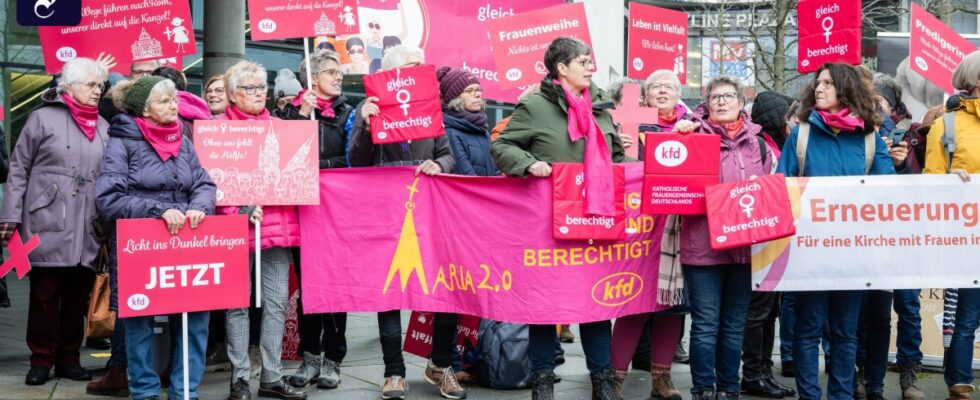Mith a clear vote in favor of opening up the ordained ministry in the Catholic Church to women, the fifth and last general assembly of the “Synodal Way” reform project ended on Saturday. More than ninety percent of the more than 200 members, including well over two-thirds of the bishops, approved a text late in the morning in which the request to Pope Francis is made to clarify the status of his predecessor’s statement on the women’s priesthood. John Paul II had stated that the Church did not have the authority to ordain women as priests alongside men.
On the one hand, this demand falls far short of the demands of many delegates that the “synodal path” must also embrace the concern that men and women should be able to administer the sacraments of the church on an equal footing, even beyond the diaconate of women. However, such a demand would have prevented the necessary consent of two-thirds of the bishops.
Plea for “Eye Level at the Altar”
Thus, at the end of a very emotional discussion, the compromise line sketched by the bishops themselves met with broad approval, taking into account all relevant theological and human scientific arguments to examine to what extent the justifications of the church magisterium for the exclusion of women from priestly ordination are still viable today.
In the debate about the plot text “Women in sacramental offices and services of the church” it was not only women, especially religious sisters, who spoke out in favor of “equal rights at the altar” and for an end to the “gendering of human dignity”. Munich Archbishop Reinhard Cardinal Marx spoke for many when he confessed that he found the arguments for excluding women from the ordained office increasingly weak and contrived.
Of course, no bishops’ conference in the world has yet decided not to declare the admission of women to be justified, but their exclusion. So it remains to be seen not only how other bishops’ conferences will react to the positioning of the Church in Germany, but also how the Pope and the Roman Curia will react to the most recent demands and requests from the country of the Reformation.
However, these are likely to play a greater role at the World Synod of Bishops beginning in autumn than the advocates of the status quo would like: Before the all-important vote, Bishop Ulrich Neymeyr of Erfurt had encouraged his fellow officials by pointing out that the Catholics were in Germany not alone with the concern of the women priesthood in the world.
On the other hand, the discussion also recalled that the demand for the opening of the diaconate to women had already been decided in 1976 by the joint synod of dioceses in the Federal Republic of Germany as a vote to the Pope and has remained without an answer to this day.
